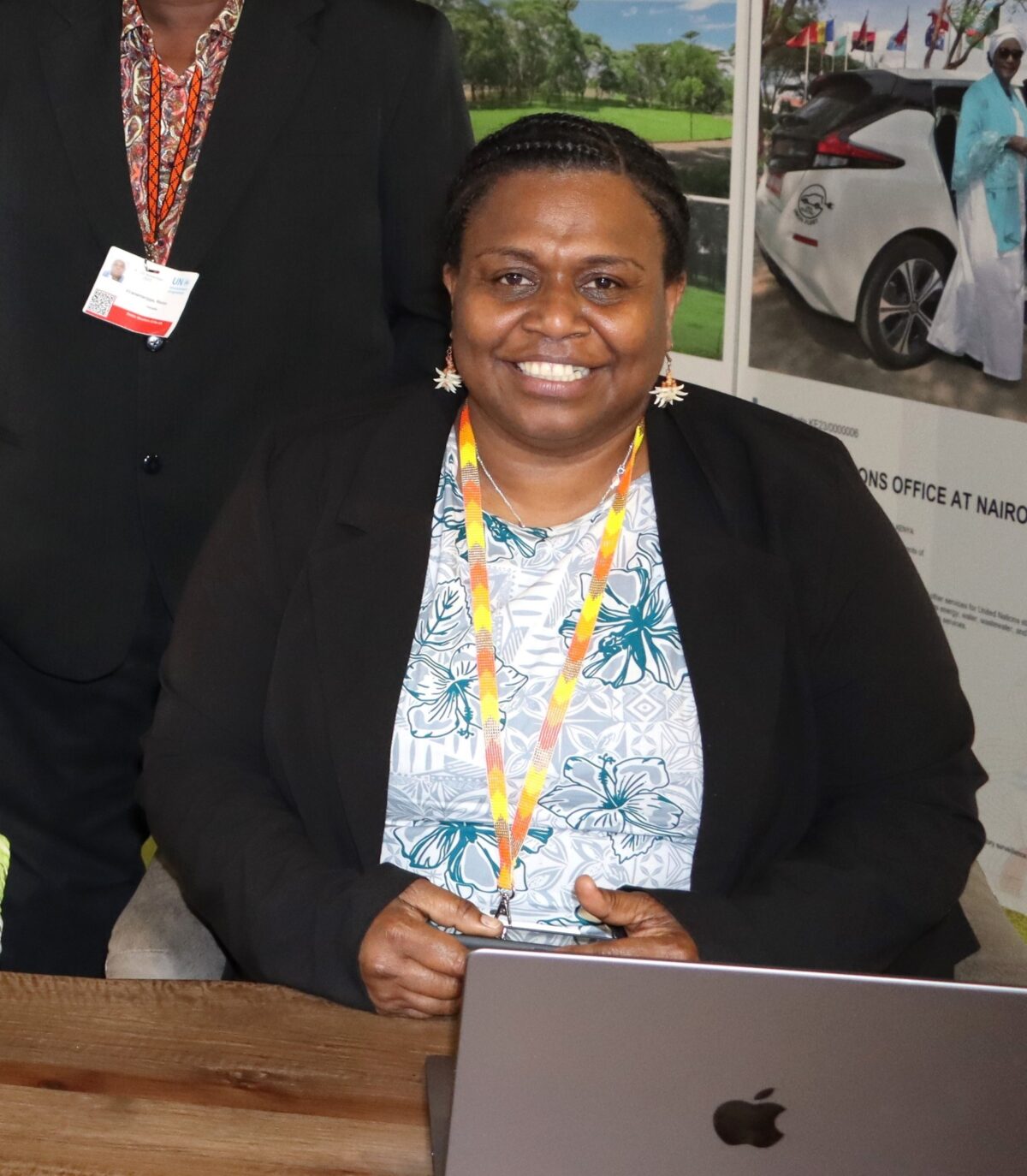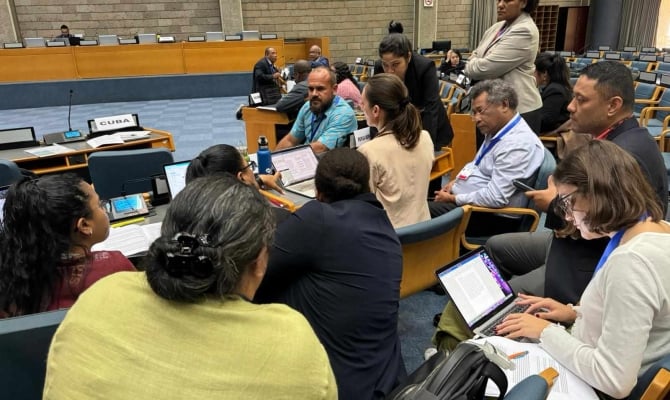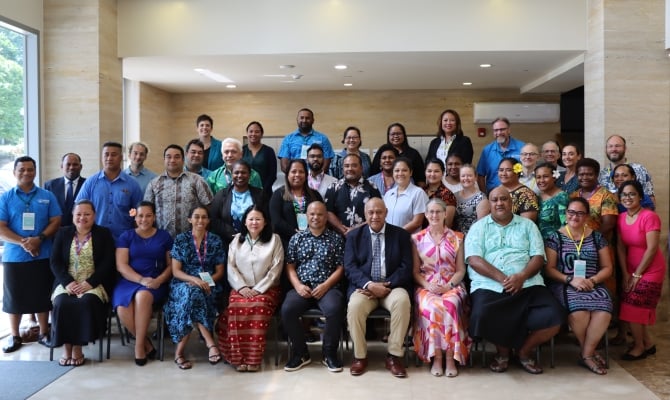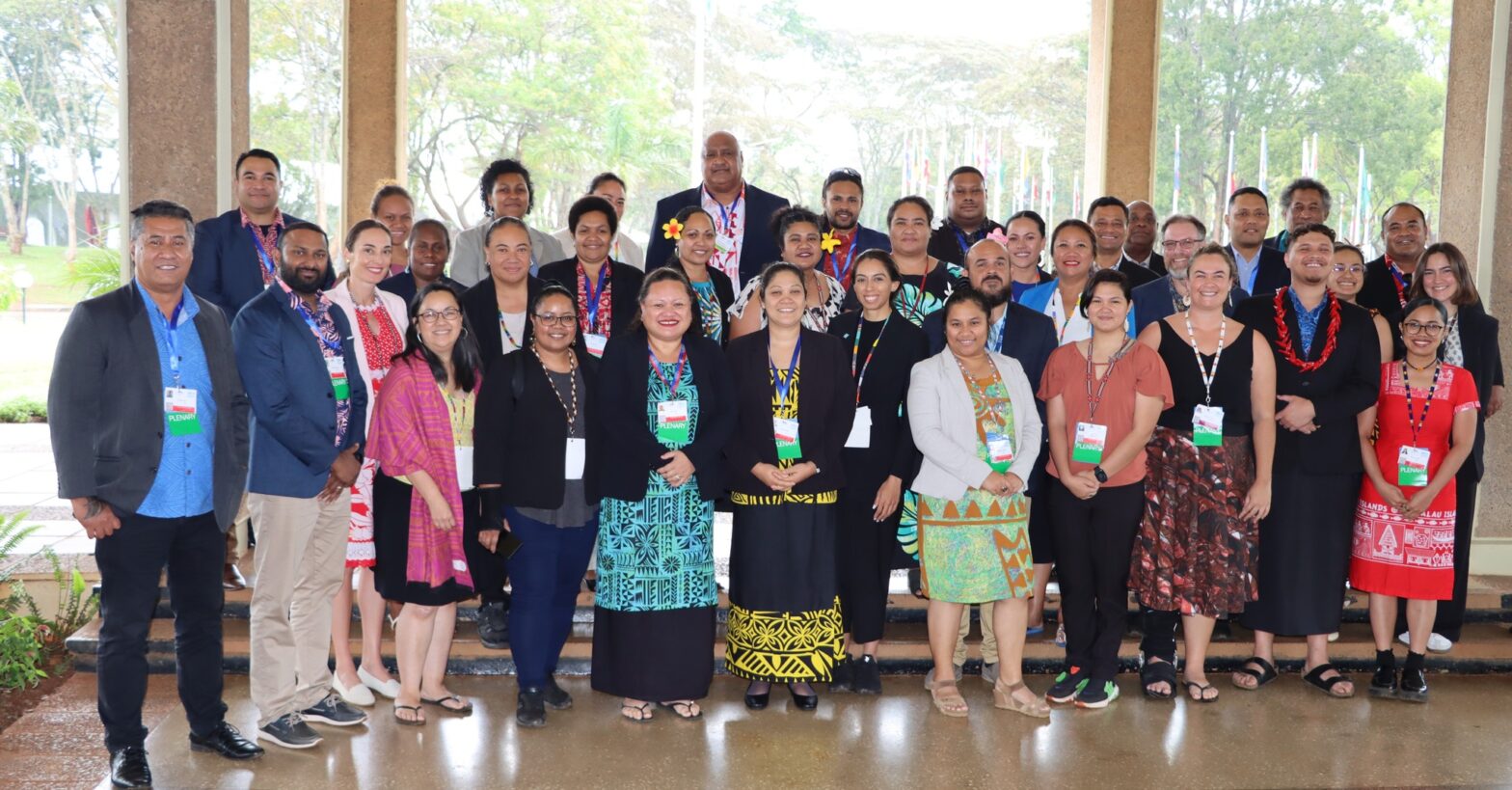Vanuatu, the first country in the world to ban plastic straws with the introduction of a single-use plastic regulation, has lent its voice to growing and urgent calls for a global treaty to end the scourge of plastic pollution.
As negotiators burn the midnight oil in the halls of the United Nations Environment Programme (UNEP) headquarters in Nairobi, Kenya, at the third session of the Intergovernmental Negotiating Committee to develop an international legally binding instrument on plastic pollution, including in the marine environment (INC-3), Vanuatu has urged parties to work together for a solution, calling on them to consider the full range of impacts on human health and the environment in the text negotiations.
On Wednesday, 15 November, Vanuatu’s Director of the Department of Environmental Protection and Conservation, Touasi Tiwok, addressed the gathering and reminded about the devastating impact of the triple planetary crisis of climate, plastic pollution and loss of biodiversity on Pacific countries.
For this year alone, Vanuatu has been struck by three devastating cyclones, the most recent one being Cyclone Lola hitting last month, leaving many communities in ruin. Earlier in the year, Cyclone Judy and Cyclone Kevin struck the island nation within the space of two days.
For Tiwok and her delegation, they have experienced the acute pain of the triple planetary crisis and they say there is no time to waste. And with more cyclones forecasted to pass through her country before the year ends, she said the impact of plastic pollution is one other burden her country and people can do without.
“We are here because we all acknowledge a simple truth – plastics pollution is a global problem, requiring a global response,” she said, adding that Vanuatu believes recycling is no longer the solution to plastic pollution.
“Vanuatu, in line with PSIDs and AOSIS, would support for the following to be adopted in our final holistic INC Treaty outcome: The Plastics Treaty must be designed as a standalone convention with specific timelines and targets.
“The Plastics Treaty should, as appropriate, support and complement existing Chemical Conventions such as Basel Convention, Rotterdam Convention, Stockholm Convention and others whose future work could also complement the Plastics Treaty.
“The Treaty must consider the full range of impacts on human health and the environment, and must reflect existing principles of Waste Management. Principles such as 3 R’s, zero waste hierarchy, circularity, waste collectors, public-private partnerships.”
Vanuatu is among 14 Pacific Small Island Developing States (PSIDS) who are amplifying the One Pacific Voice calling for a treaty on plastics in Nairobi.
INC-3 marks the mid-point of the journey towards a global treaty, following two earlier rounds of negotiations: INC-1, which took place in Punta del Este, Uruguay, in November 2022, and INC-2, which was held in Paris in June. Two more INC sessions are planned for 2024, in Canada and Korea.
This week, negotiators from Pacific countries and from all over the world are responding to the Zero Draft and considering possible provisions related to principles, definitions and scope.
“As a PSIDS member, we support the text in Item 2 of Part III and emphasise that capacity-building, technical assistance and technology transfer must be designed to be sustainable and long-term with due consideration of national circumstances and needs of Parties especially SIDS,” Tiwok said.
“We support a needs assessment to design technical assistance and technology transfer based on fair and most favourable terms including concessional and preferential ones according to mutually agreed terms.”
Vanuatu was the first country in the world to ban plastic straws in 2018 in its single-use plastic regulation which also included non-biodegradable plastic, including bags and polystyrene containers. Since then, the island nation has made significant progress with the ban now extended to include plastic cutlery and grocery packaging like netting and clamshell cases.
But Tiwok wants to see quality leadership from other INC member countries to address the problem, including a commitment to capacity building, financial support, training and research and in other areas.
“Our Pacific region not only faces challenges of accessing financial mechanisms but are compounded by capacity constraints within institutions, policy support, awareness, training, research and education, among others,” she said. “The implementation of this instrument will require timely, sustainable, comprehensive and adequate capacity-building and technical assistance to developing countries, particularly Small Island Developing States (SIDS).”
The third Intergovernmental Negotiating Committee to develop an international legally binding instrument on plastic pollution, including in the marine environment is taking place in Nairobi Kenya from 13 – 19 November 2023.
The Pacific Islands are represented by the Cook Islands, Federated States of Micronesia, Fiji, Kiribati, Marshall Islands, Nauru, Niue, Palau, Papua New Guinea, Samoa, Solomon Islands, Tonga, Tuvalu and Vanuatu through the support of the Government of Australia and the United Nations.
They are supported by the Secretariat of the Pacific Regional Environment Programme (SPREP), working with partners the Pacific Islands Forum Secretariat, Office of the Pacific Ocean Commissioner, Environmental Investigation Agency, Centre for International Environmental Law, University of Wollongong, WWF and Massey University.
This story was originally published at SPREP on 17 November 2023, reposted via PACNEWS.




